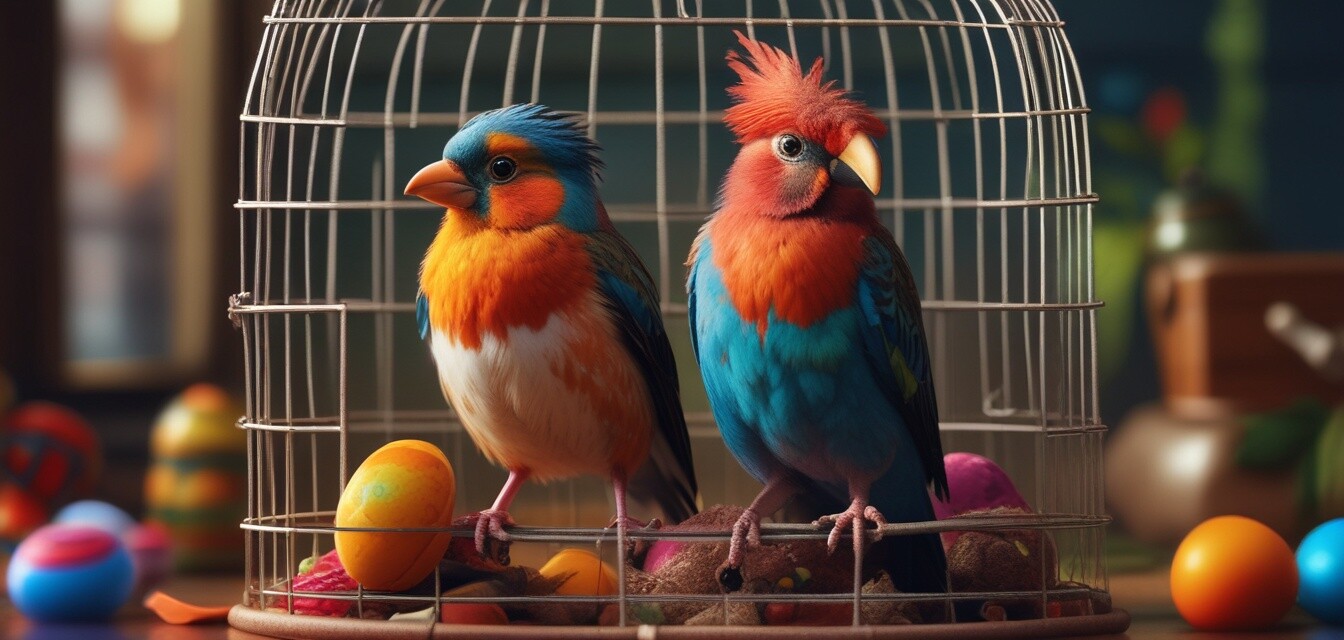
How to Recognize and Address Feather-Plucking
- Feather-plucking is often a sign of stress or health issues in cage birds.
- Early recognition of the behavior can help in implementing effective prevention strategies.
- Consulting with an avian vet is crucial for persistent feather-plucking problems.
- Creating an enriched environment and providing proper nutrition can aid in preventing this behavior.
Caring for your cage birds is vital for their happiness and longevity. One common issue that bird owners may encounter is feather-plucking, a behavior that can be both distressing and damaging to our feathered friends. This article will provide insights into recognizing the signs of feather-plucking, understanding its potential causes, and implementing effective prevention and treatment strategies.
Understanding feather-plucking behavior
Feather-plucking occurs when birds remove their own feathers, often leading to bald patches that can become a serious concern for their health. Recognizing this behavior early is key to addressing its underlying causes.
Common signs of feather-plucking
- Visible bald patches on the body or wings
- Feathers on the cage floor or in the bird's surroundings
- Frequent scratching or picking at the feathers
- Behavioral changes, such as increased irritability or lethargy
Causes of feather-plucking
Feather-plucking can stem from various factors, which can be broadly categorized into environmental, psychological, and medical causes. Understanding these can help bird owners address the issue effectively.
| Cause | Description |
|---|---|
| Stress | Changes in environment, such as moving to a new home, or loud noises can lead to stress. |
| Boredom | Lack of mental stimulation or physical exercise may cause birds to pluck their feathers. |
| Health Issues | Infections, allergies, or skin conditions could lead to feather-plucking as a response to discomfort. |
| Nutritional Deficiencies | A poor diet lacking essential nutrients can contribute to unhealthy feather condition. |
| Breeding Behavior | Hormonal changes during mating seasons may lead to increased feather-plucking. |
Preventing feather-plucking
Prevention is often more manageable than treatment when it comes to feather-plucking. Here are some effective strategies:
Tips for preventing feather-plucking
- Provide a spacious and enriched living environment, including toys and perches.
- Ensure an optimal diet with a balanced mix of seeds, pellets, fruits, and vegetables.
- Establish a consistent daily routine to reduce stress.
- Consult with an avian vet to monitor your bird’s health and address medical issues promptly.
- Rotate toys regularly to keep the bird engaged and stimulated.
Treating feather-plucking
If you notice your bird is plucking its feathers, it’s essential to take corrective action promptly. Treatment will vary based on the cause, but here are some general approaches:
- Visit an avian vet for an evaluation to rule out any underlying health issues.
- Enhance the living environment with more toys, perches, and camouflage options.
- Adjust the diet as needed, incorporating nutrient-dense foods.
- Consider pheromone diffusers to reduce anxiety.
- Establish a routine that includes interactive playtime to foster bonding and reduce boredom.
Consulting a veterinarian
It’s crucial to get professional help if feather-plucking persists. An avian veterinarian can provide a comprehensive diagnosis and treatment plan tailored to your cage bird’s specific needs.
Conclusion
Feather-plucking is a common concern among cage bird owners, but with the right knowledge and proactive measures, you can help your feathered friend. By understanding the causes, implementing prevention strategies, and seeking veterinary care when necessary, you can ensure that your cage birds remain healthy and happy in their environment.
Pros
- Improved health and wellness for your cage birds.
- Enhanced understanding of bird behavior.
- Stronger bond with your feathered friends.
- Prevention of future stress-related issues.
Cons
- It may take time to identify underlying causes.
- Consultations with veterinarians can incur costs.
- Some behaviors may require behavioral conditioning.
For more insights into bird care, visit our Cage Bird Health and Care section. If you're interested in specific products to enhance your bird's habitat, check out our guide on Bird Habitat Enhancements. Don't forget to explore Buying Guides for Cage Birds for more helpful tips on caring for your feathered friends!